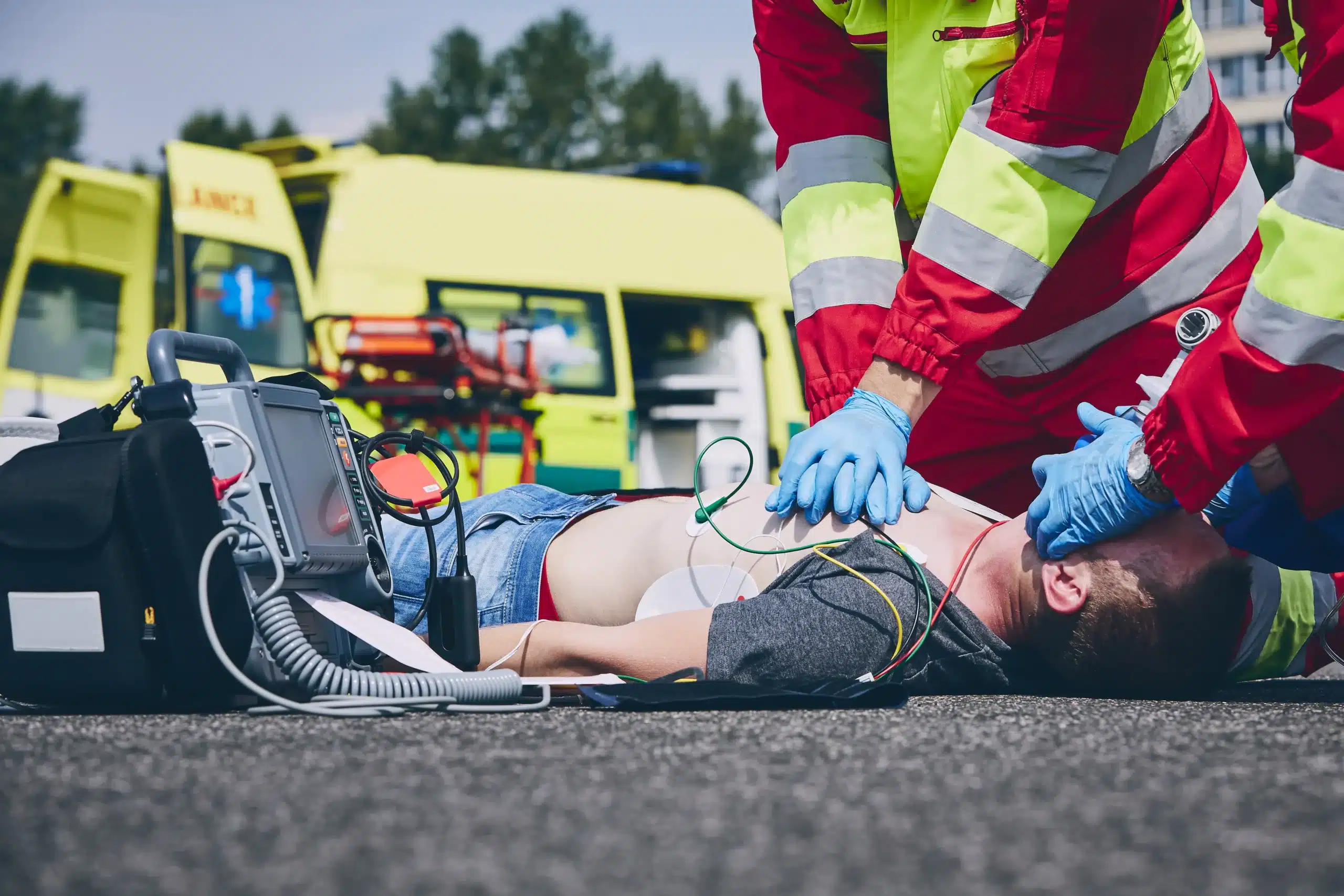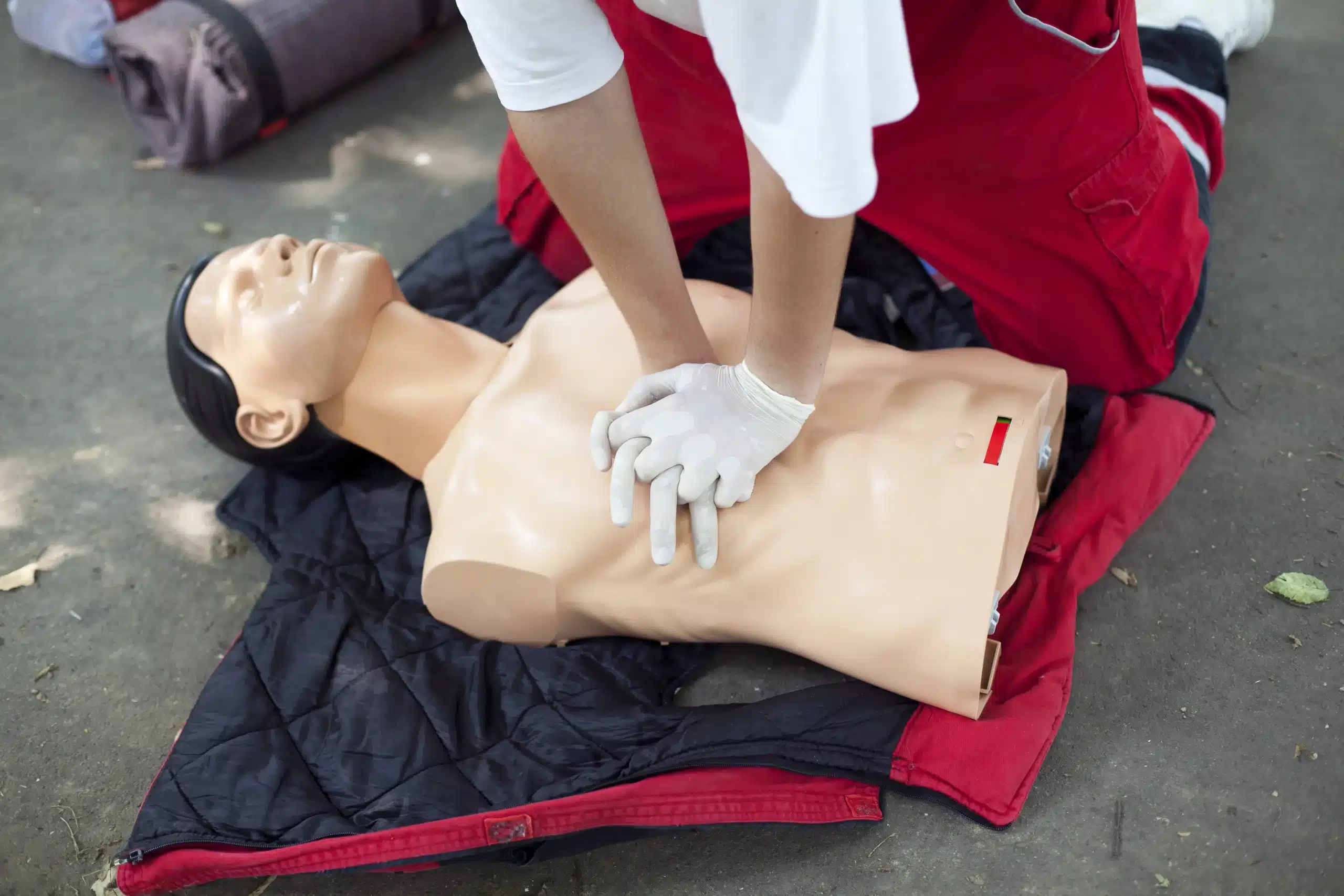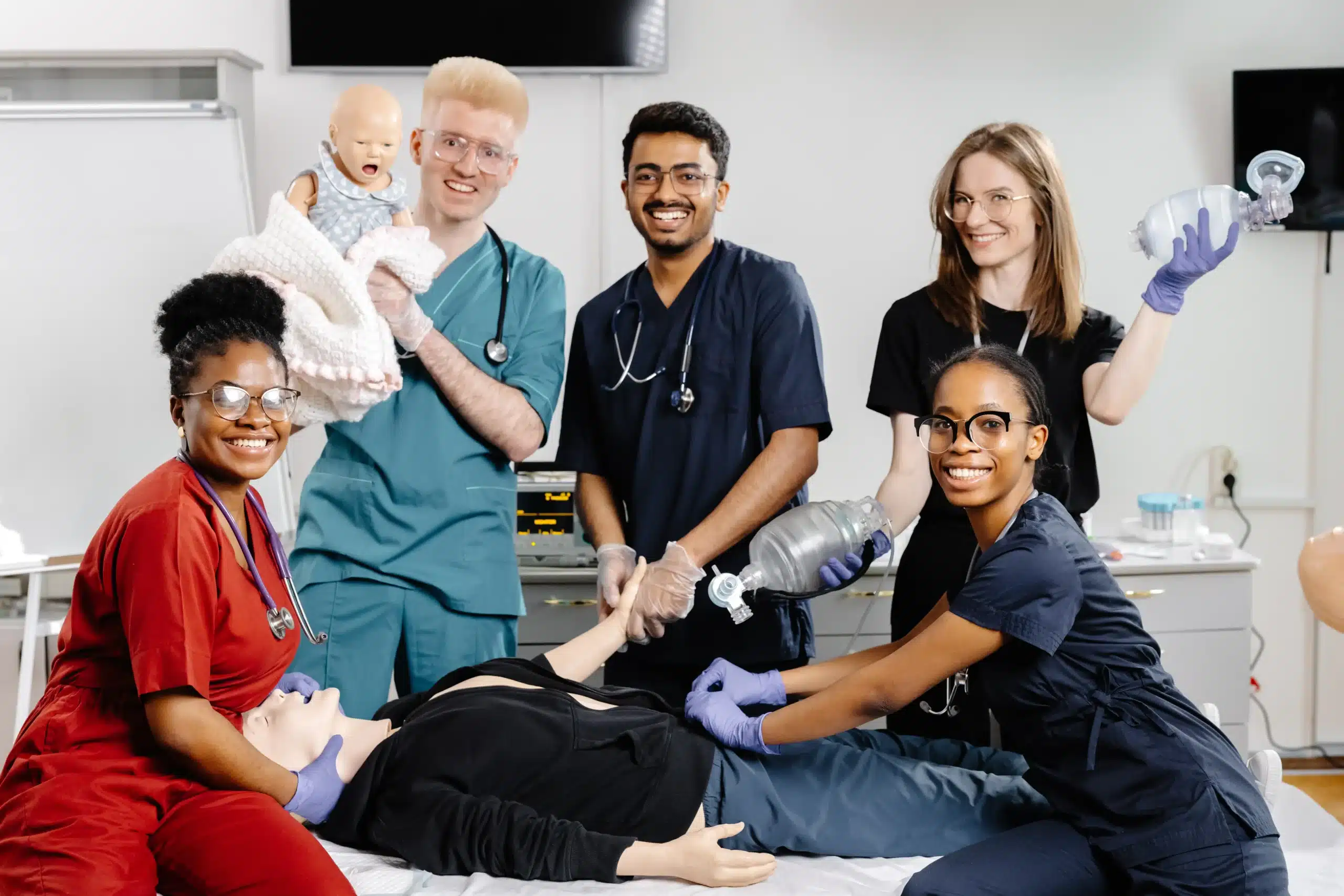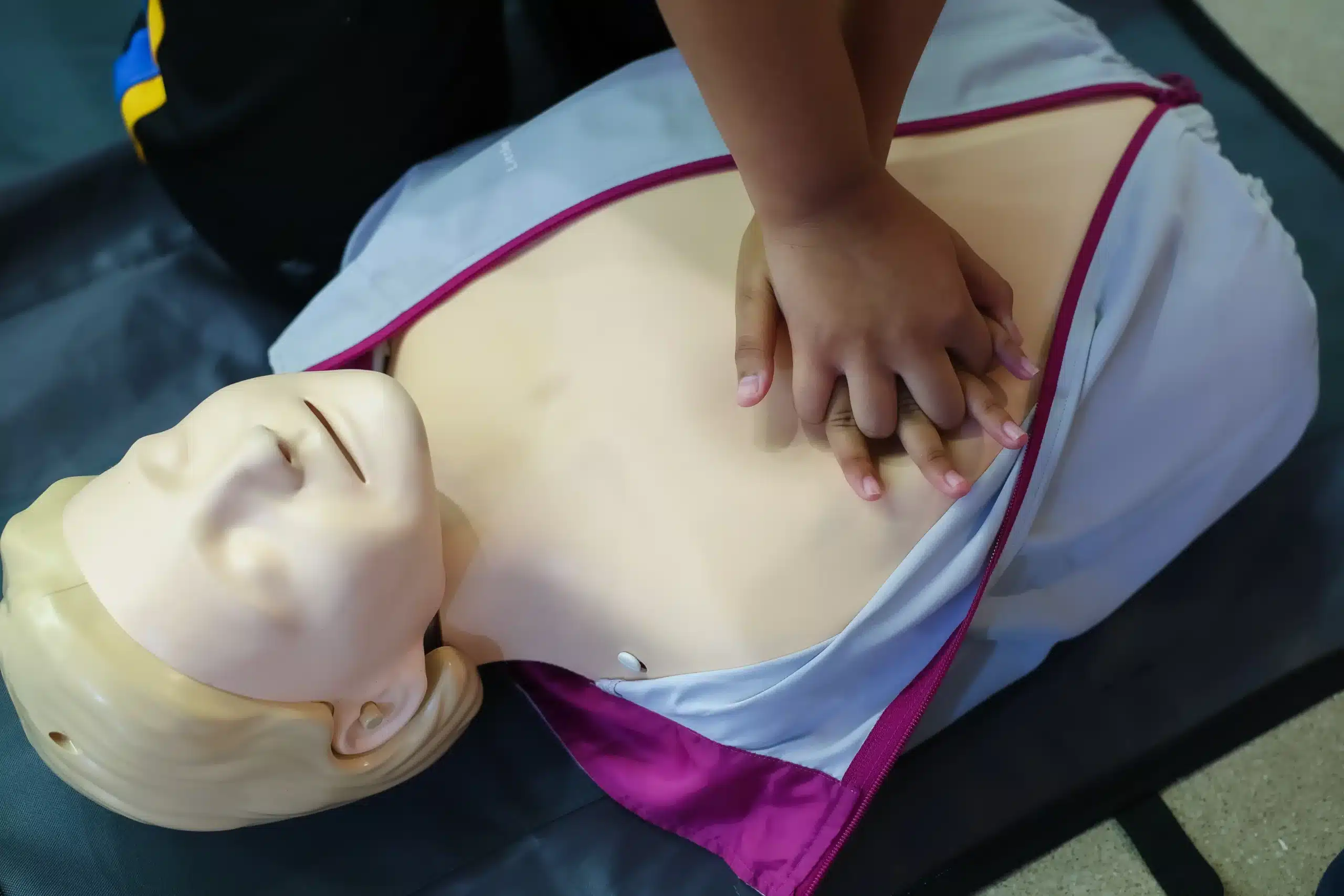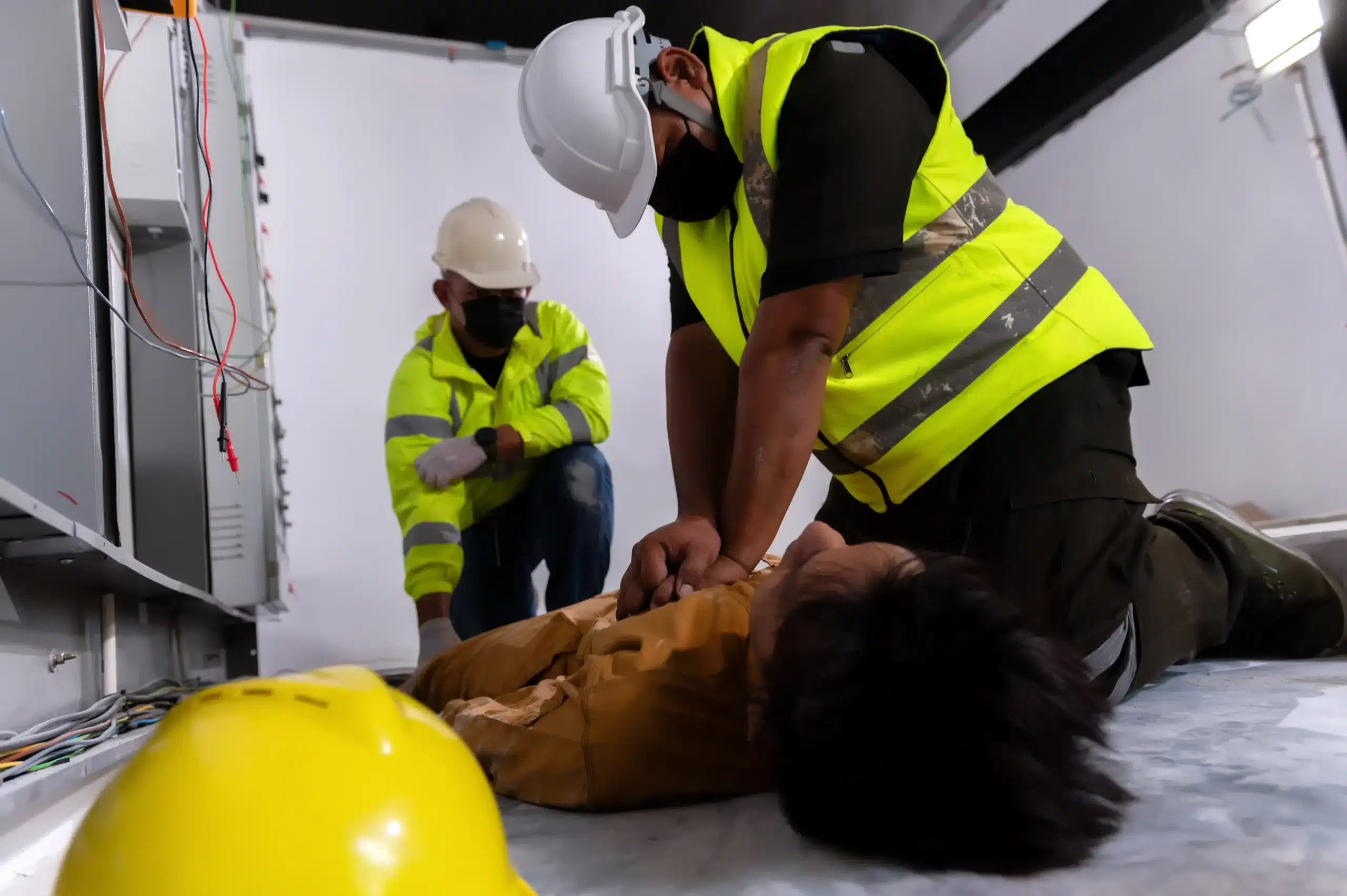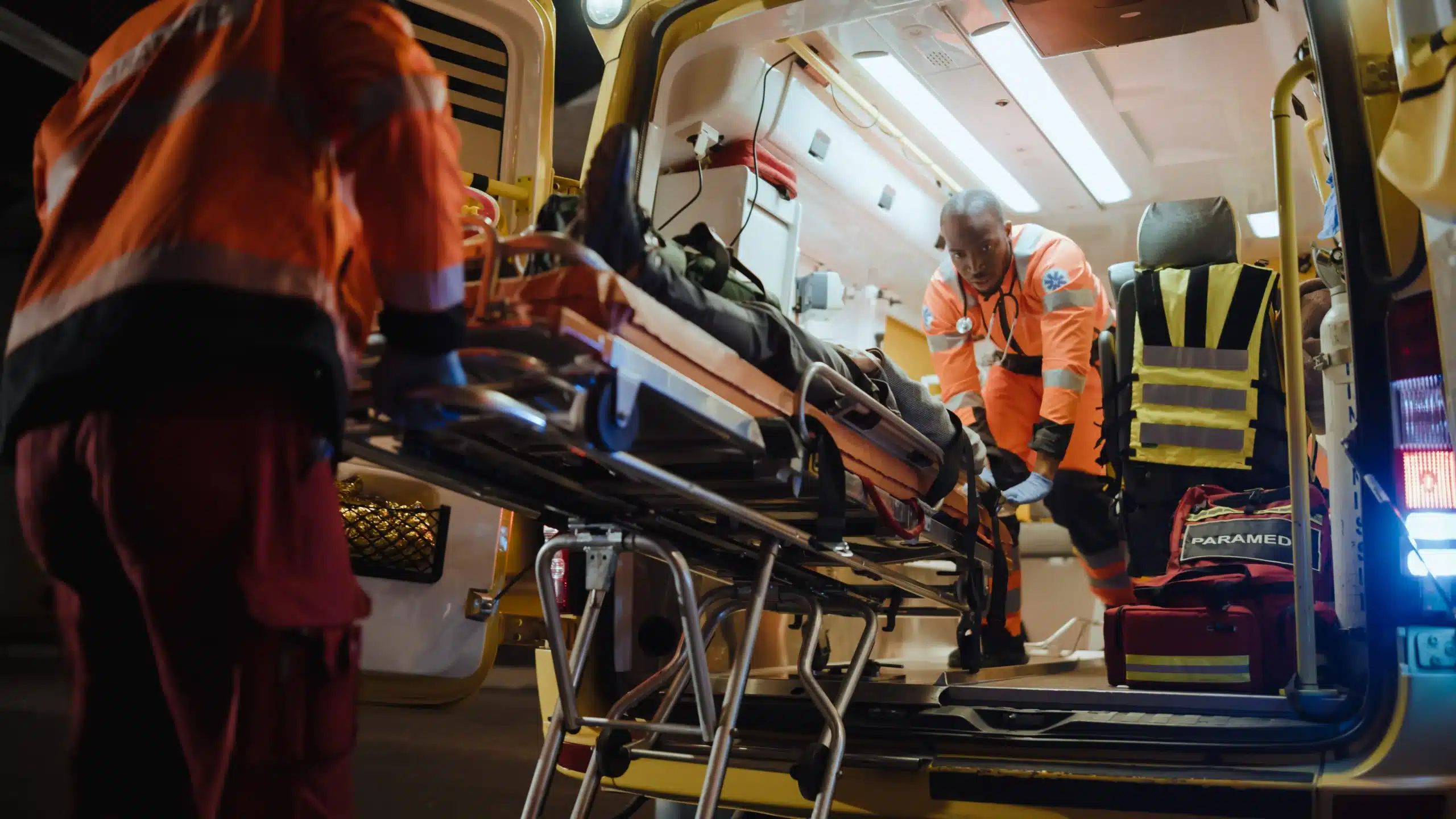Emergencies happen, and when they do, knowing basic life support can be the difference between life and death. If you’re looking for BLS certification in Concord, you’re in the right place. This comprehensive guide covers everything from the core components of BLS training to choosing the right course format for your lifestyle. We’ll explore the value of BLS certification, the various providers in Concord, and how to overcome common challenges in getting certified. Empower yourself with the skills to save a life—let’s explore the world of basic life support in Concord together.
Key Takeaways
- BLS certification provides essential life-saving skills: Learn CPR, AED use, and airway management to confidently respond to medical emergencies, assisting anyone in need.
- Select the right BLS program for your needs: Consider instructor experience, course format (in-person, online, or blended), and cost. Ask providers about their curriculum and certification process.
- Stay current with your BLS certification: Recertify every two years and refresh your knowledge regularly to maintain your skills and provide effective care.
What is BLS?
Basic Life Support (BLS) is a crucial training program that gives people the skills to respond to life-threatening emergencies, especially cardiac arrest. BLS training focuses on essential techniques that can dramatically improve someone’s chances of survival until paramedics arrive. It empowers individuals to take immediate action and provide critical care during those first few, vital minutes.
Core BLS Components
BLS training covers several fundamental components to prepare you for a range of emergency situations. You’ll learn how to perform high-quality CPR, a vital technique that maintains blood flow to the heart and brain during cardiac arrest. The training also includes using an Automated External Defibrillator (AED), a device that can restore a normal heart rhythm. Additionally, you’ll learn basic airway management to ensure the person can breathe effectively. These core skills work together to form a comprehensive approach to emergency care. For more information on our BLS course, visit our BLS page. We also offer RQI classes for healthcare professionals looking to refresh their skills.
Importance in Emergencies
BLS training is incredibly important, especially during emergencies. It prepares both healthcare professionals and everyday people to respond effectively and confidently. Having more people in our community trained in BLS can significantly improve public health and safety. BLS-trained individuals can provide immediate assistance while waiting for professional medical help to arrive, potentially saving lives. If you’re interested in learning BLS, check our course schedule for upcoming classes. We offer a low price guarantee for all our courses, making this life-saving training accessible to everyone. Contact us with any questions.
Why Get BLS Certified in Concord?
Career Opportunities & Professional Growth
BLS certification opens doors to a wide range of career paths. It’s a fundamental requirement for many healthcare professions, including doctors, nurses, and emergency medical technicians. Even outside direct patient care, American Red Cross, meet or exceed national standards, strengthening your resume. A BLS certification demonstrates a commitment to patient safety and high-quality care, enhancing your professional credibility and creating opportunities for advancement. BLS training also equips healthcare providers with essential skills for effective responses in critical situations, ultimately improving patient outcomes, according to ACLS.com.
Personal Preparedness & Community Impact
Beyond career advancement, BLS certification empowers you to make a real difference. Knowing Basic Life Support can be invaluable in emergencies, whether at home, at work, or in public. Medtigo explains that BLS training covers essential skills like using an AED, managing airways, and assisting someone who is choking—critical skills in the moments before professional help arrives. Concord CPR Classes emphasizes how BLS training strengthens community safety and health. Becoming BLS certified makes you a more prepared and confident individual, ready to respond effectively in a crisis and potentially save a life. Bay Area CPR notes how these vital skills, taught in Concord CPR and First-aid classes, benefit the entire community, creating a safer environment for everyone.
Top BLS Certification Providers in Concord
Finding the right BLS certification course can feel overwhelming, so I’ve compiled a few popular options in Concord to get you started. Remember to confirm all information and current course offerings directly with each provider.
Safety Training Seminars
Safety Training Seminars offers a range of American Heart Association courses, including BLS, ACLS, PALS, CPR, and First Aid. As a woman-owned AHA Training Center, they prioritize high-quality instruction and convenient scheduling, with classes offered daily throughout Contra Costa County. Learn more about their BLS, ACLS, PALS, First-aid and CPR courses.
CPR Training Center
The CPR Training Center provides AHA-certified CPR, BLS, ACLS, and PALS courses for both initial certification and renewal. Serving the greater Bay Area, including Concord, they offer various options to suit your schedule. Explore their CPR classes and AHA certifications.
AHA Training Centers
If you prefer to go directly through the source, AHA Training Centers adhere to the AHA’s comprehensive BLS CPR curriculum, ensuring your training reflects the latest evidence-based guidelines and best practices in emergency cardiovascular care.
American Red Cross
The American Red Cross is a well-known provider of CPR and BLS training, offering flexible learning formats. Choose from in-person, online, or blended learning (a combination of online and in-person instruction). See which of the Red Cross CPR class options works for you. Digital certification is provided after successful completion.
Course Formats & Flexible Scheduling
Finding the right course format and schedule is key to successfully completing your BLS certification. Luckily, there are several options available to fit your learning style and busy life. Whether you prefer hands-on learning, the flexibility of online study, or a combination of both, you can find a BLS course that works for you.
In-Person Classes
In-person BLS classes offer a dynamic learning environment. You’ll receive direct instruction from experienced professionals, practice skills in real-time, and get immediate feedback. This hands-on training is invaluable for building confidence and mastering essential BLS techniques. The interactive nature of in-person classes also allows you to ask questions, clarify doubts, and learn from the experiences of your classmates. For those who thrive in a collaborative setting, in-person classes provide a supportive and engaging learning experience.
Online Options
If your schedule makes attending in-person classes difficult, online BLS training might be a good fit. Online courses offer flexibility, allowing you to learn at your own pace and on your own schedule. You can review materials as needed and complete the coursework whenever it’s convenient. Many online programs, such as those offered by ACLS.com, provide interactive modules, videos, and simulations to enhance the learning experience. This format is ideal for self-directed learners who prefer to study independently.
Blended Learning
Blended learning combines the best of both worlds. Programs like the American Heart Association’s RQI program offer online learning modules combined with in-person skills practice sessions. This approach allows you to learn the theoretical aspects of BLS online and then apply your knowledge during hands-on practice. Blended learning offers a flexible yet comprehensive approach to BLS certification, catering to those who appreciate both independent study and hands-on training.
Daily Classes
We understand that your time is valuable. To make scheduling easier, we offer BLS courses every day. This means you can find a class that fits your availability, whether it’s a weekday evening or a weekend session. With daily classes, getting certified is more convenient than ever. Check out our course calendar to find a date and time that works for you.
BLS Certification: Cost & Value
Getting BLS certified is an investment in your skills and future. Let’s break down the costs associated with BLS certification and explore the value it offers.
Average Pricing & Low Price Guarantees
The cost of BLS certification varies depending on the training provider and course format (online, in-person, or blended learning). Generally, BLS certification is more affordable than more advanced certifications like ACLS, as it covers fundamental life support skills. Many providers, like Safety Training Seminars, offer a low price guarantee, ensuring you get the best value. Check with providers in your area, like those offering BLS courses in Visalia, for specific pricing.
Group Discounts & Promotions
If you’re training with a group, explore group discounts. Many training centers offer reduced rates for group bookings, making it a cost-effective way to get certified together. Group discounts can make training more accessible, especially for organizations. Contact providers directly to inquire about group rates and any ongoing promotions.
Long-Term Benefits & ROI
While there’s an initial financial investment, the long-term benefits of BLS certification are substantial. BLS training equips you with the skills to respond effectively in medical emergencies, potentially saving lives. This translates to increased confidence and preparedness, whether you’re a healthcare professional or someone who wants to be prepared. For many healthcare careers, BLS certification is a prerequisite, opening doors to professional opportunities.
Instructor Qualifications & Course Quality
When your health is on the line, you want to know the person providing care has the right training. Choosing a BLS course with qualified instructors is crucial for receiving effective, up-to-date instruction. Here’s what to look for:
Certification & Expertise
Instructors should be certified by a recognized organization like the American Heart Association (AHA). This ensures they’ve met specific standards and possess the necessary knowledge to teach BLS effectively. Safety Training Seminars is a woman-owned AHA Training Center, meaning their instructors have undergone rigorous training and maintain current certifications. AHA-certified instructors are equipped to teach the latest life-saving techniques, giving you confidence in your skills.
Emergency Medicine Experience
While formal certification is essential, real-world experience adds another layer of valuable insight. Instructors with backgrounds in emergency medicine, healthcare, or related fields often bring practical knowledge to the classroom. They can share real-life scenarios and answer your questions based on their experience, making the learning process more engaging.
Ongoing Training & Updates
Medical best practices are constantly evolving. The science behind resuscitation and emergency care is regularly reviewed and updated. For example, BLS guidelines were updated in 2020 to reflect the best way to provide ventilation during resuscitation. Choose a training provider committed to ongoing education for instructors. This ensures you’re learning the most up-to-date techniques and are prepared to respond confidently in an emergency.
What to Expect in a BLS Course
So, you’re ready to become BLS certified? Great! Here’s a preview of what you can expect during your BLS training. A typical BLS course covers essential life-saving skills for adults, children, and infants. You’ll learn how to recognize life-threatening emergencies, provide high-quality chest compressions, deliver appropriate ventilations, and use an automated external defibrillator (AED).
Course Duration & Key Skills
BLS certification is valid for two years. Instructor-led courses typically last about four to five hours. If you’re short on time, blended learning courses combine online instruction with shorter in-person skills sessions. Expect to spend one to two hours on the online portion, followed by two to three hours practicing with an instructor.
Hands-on Practice
BLS courses aren’t just lectures. You’ll have many opportunities to practice your skills in a safe and supportive environment. Courses are taught by experts and meet or exceed national standards. Expect to work with training manikins and AED trainers to simulate real-life emergencies. This hands-on training builds confidence and prepares you to respond effectively under pressure.
Assessment & Certification
To earn your BLS certification, you’ll need to demonstrate competency in all the key skills. This typically involves a written exam and a practical skills test. After successfully completing the course, you’ll receive an official American Heart Association certification card, valid for two years. This nationally recognized credential validates your skills and knowledge to potential employers and healthcare organizations. Online BLS training courses also provide a flexible and convenient option for healthcare professionals.
Maintaining Your BLS Certification
Once you’ve earned your BLS certification, staying current is key. Knowing the renewal process and keeping up with the latest guidelines ensures you’re always prepared to provide effective care.
Renewal Process & Validity
Your BLS certification is typically valid for two years. To maintain your credentials, you’ll need to complete a recertification course before it expires. Recertification courses refresh your knowledge and ensure you’re prepared for various emergency situations by covering essential skills and any updates to BLS guidelines.
Continuing Education
Continuing education is crucial for maintaining your BLS certification and providing high-quality care. After your initial certification, look for opportunities to expand your knowledge. Even small steps, like reviewing the latest BLS guidelines, can significantly impact your effectiveness. Consider attending workshops or taking refresher courses to stay sharp and confident in your skills.
Staying Updated with Guidelines
Staying informed about the latest BLS guidelines is essential for anyone providing emergency care. Organizations like the International Liaison Committee on Resuscitation (ILCOR) periodically review and update these guidelines. Keeping current with these updates, such as those found on the American Heart Association website, ensures your skills are aligned with the most effective practices. This commitment to ongoing learning benefits both you and those you care for.
Overcoming BLS Certification Challenges
Getting your BLS certification is a worthwhile pursuit, but it’s understandable to have some concerns. Let’s address some common challenges and how you can overcome them.
Addressing Scheduling Conflicts
One of the biggest hurdles people face is finding a class that fits their busy schedule. Many providers understand this and offer a variety of class times to accommodate different needs. For example, Safety Training Seminars offers daily BLS classes in Visalia, making it easier to find a time that works for you. Look for providers who offer weekend or evening courses, or consider online or blended learning options for more flexibility.
Understanding Certification Standards
It’s important to know that BLS certification follows specific standards. These standards ensure consistent, high-quality training across the board. All BLS courses are based on the American Heart Association guidelines, so regardless of where you take your class, you’ll learn the same core skills. If you have any questions about the standards, don’t hesitate to contact your chosen training provider – they can clarify any confusion.
Accessing Resources & Support
Beyond the course itself, there are resources available to support you throughout the certification process. Some providers offer refresher courses or online materials to help you maintain your skills. For instance, Safety Training Seminars offers RQI classes for convenient skills maintenance. If you need help with anything from registration to course preparation, reach out to the provider’s support team. They are there to help you succeed. Remember, getting BLS certified is an investment in yourself and your community. Safety Training Seminars is committed to offering the lowest prices in Tulare County.
Choosing the Right BLS Program in Concord
Finding the right BLS program in Concord means thinking about a few key things. With different providers and course formats, it’s important to choose a program that fits your needs and learning style. This section will help you find the perfect program for you.
Factors to Consider
When looking at BLS programs, consider what’s most important to you. Convenience is often key. Providers like Safety Training Seminars offer daily BLS classes in Concord and throughout Contra Costa County, making scheduling easier. The curriculum is another important factor. Make sure the program follows the latest American Heart Association guidelines, covering essential skills and best practices for emergency cardiovascular care. And, of course, verify the program offers the official AHA BLS Certification card, valid for two years.
Questions to Ask Providers
Don’t be afraid to ask potential providers questions. Ask about the instructors’ qualifications and their experience in emergency medicine. A skilled and experienced instructor can make a big difference in how much you learn. Ask about the course format and if it includes hands-on practice, which is essential for developing BLS skills. Inquire about the total cost, including any extra fees or materials. Comparing prices and checking for things like Safety Training Seminars’Low Price Guarantee can help you find the best value. Finally, ask about the certification process and how you’ll receive your AHA certification card.
Making Informed Decisions
Making a smart decision means gathering all the information and comparing your options. Think about how you learn best. If you like a traditional classroom, in-person classes might be best. If you need more flexibility, look into online or blended learning options. Reading reviews from other students can give you insights into different providers. Consider the long-term benefits of certification. BLS certification can create career opportunities and give you the confidence to act in emergencies. By thinking about these factors and asking the right questions, you can choose a BLS program in Concord that works for you and prepares you to provide life-saving care. Contact us if you have questions.
Related Articles
- BLS Certification in Tulare County: Your Complete Guide – Visalia CPR Classes
- CPR Training in Visalia: Your Complete Guide – Visalia CPR Classes
- HeartCode ACLS Pleasant Hill: Your Certification Guide – Visalia CPR Classes
- Why CPR is Important in Healthcare – Visalia CPR Classes
Frequently Asked Questions
What exactly does BLS cover?
BLS training teaches you the core skills needed to respond to life-threatening emergencies like cardiac arrest. This includes high-quality CPR, how to use an AED, and basic airway management techniques. It focuses on providing immediate care in the critical minutes before professional help arrives.
Why should I get BLS certified if I’m not in healthcare?
BLS certification is valuable for anyone, not just healthcare professionals. Knowing these skills can help you respond effectively in emergencies at home, work, or out in your community. It empowers you to act confidently and potentially save a life. Plus, it’s often a preferred qualification for jobs like coaching, teaching, and other community-focused roles.
What’s the difference between in-person, online, and blended learning for BLS?
In-person classes offer hands-on training with an instructor and immediate feedback. Online courses provide flexibility to learn at your own pace, while blended learning combines online modules with in-person skills practice. Each format has its advantages, so choose the one that best suits your learning style and schedule.
How much does BLS certification cost, and how long is it valid?
Costs vary depending on the training provider and course format. Look for providers offering a low price guarantee to ensure you’re getting the best value. BLS certification is typically valid for two years. You’ll need to take a recertification course to maintain your credentials.
How do I choose the right BLS training provider?
Consider factors like the instructors’ qualifications, course format, schedule flexibility, and overall cost. Don’t hesitate to contact different providers and ask questions about their programs. Look for providers who offer AHA-certified courses and instructors with real-world experience. Reading reviews and comparing options can help you make an informed decision.
